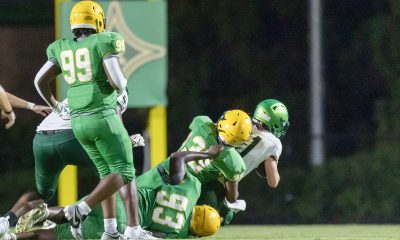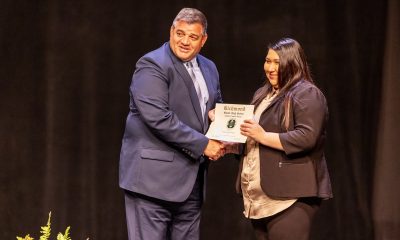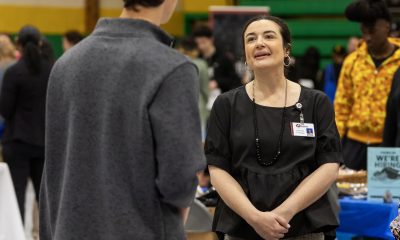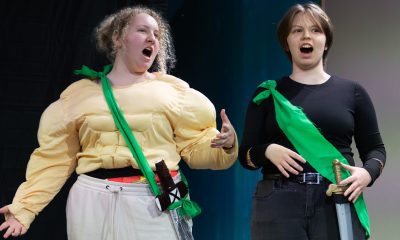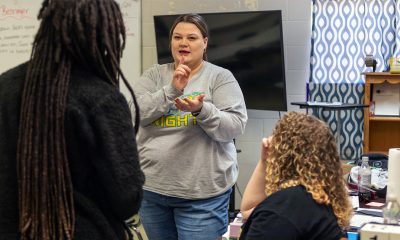Arts
“I can do anything” was the theme of a recent RCS grassroots event connecting students with music
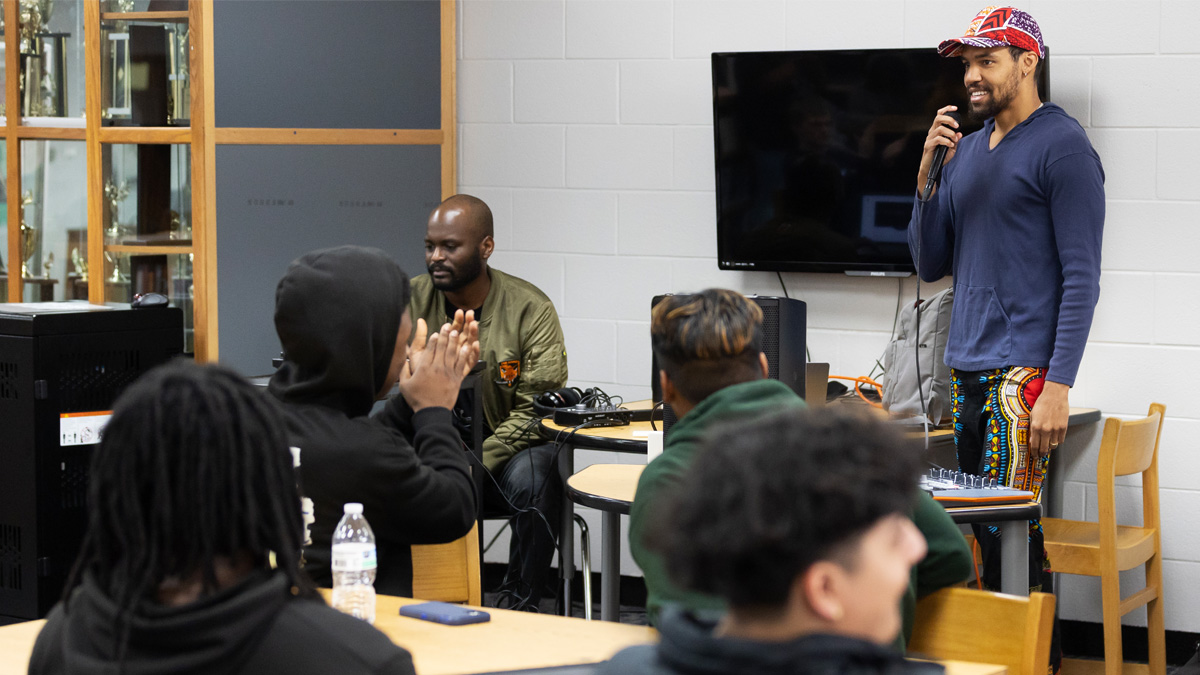
Connecting students with relevance and culture was the grassroots effort in Richmond County Schools last week that linked hip-hop music to students at Richmond Senior High School and Ashley Chapel Educational Center.
During numerous 90-minute sessions throughout the week, students learned about sampling music and layering soundtracks and competed in beat battles for the best of the best.
Wanting something meaningful for the local youth, Angela Gallagher, the Richmond County Schools Director of Program Improvements, said she wanted to bring a cultural piece to connect with secondary students.
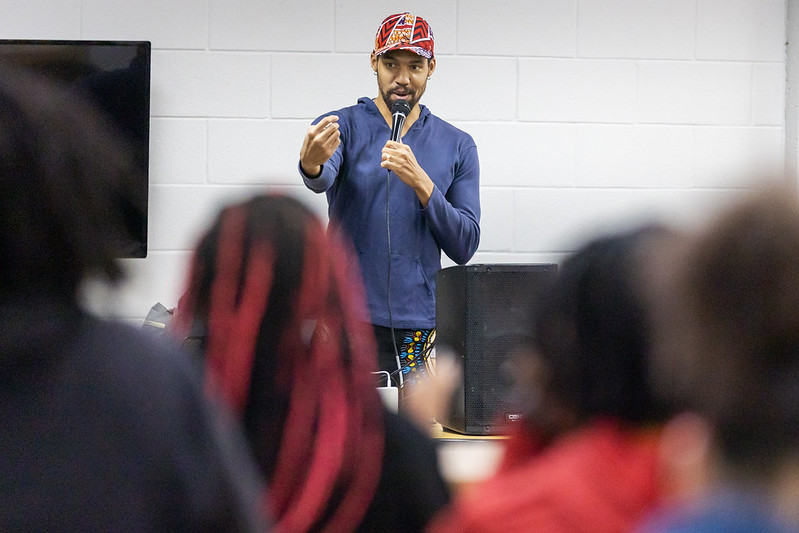
She said this project was supported by the North Carolina Arts Council, a division of the Department of Natural and Cultural Resources and thought music might be a great avenue to give some of RCS students hands-on music experience.
One of those students in the audience cheering on her friends in the beat battle was sophomore Carolyn Capel, who visited the hip-hop session with her African American Studies class before lunch.
“This was so much fun today,” she said afterward. “I learned a lot about making music and having fun at the same time. This opportunity is awesome; we wouldn’t get it outside of school. They were so excited to help us and show that music can be a career for some.”
Gallagher said the beat-making software used during the presentations is free for all Richmond County Schools and available to them on their classroom portal, Clever.
“Watching our students create their own beats and interacting with our guests and other students positively is exciting,” she said. “We can see the sparks in their faces and that they can do something here that many of them are already doing at home.”
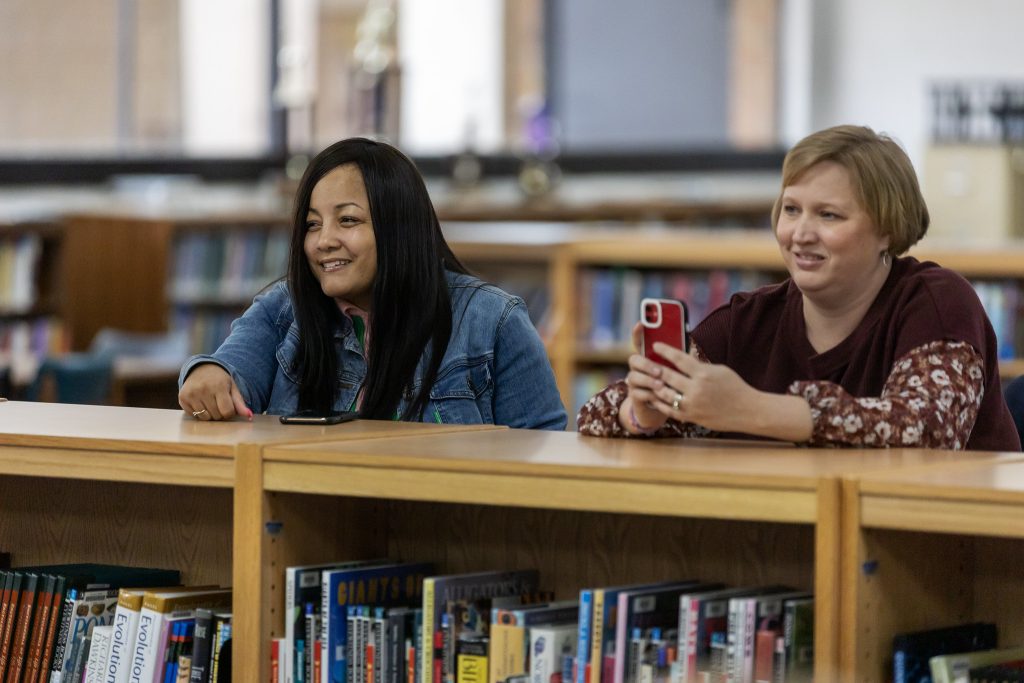
She said she was excited to see how the school district can bring this type of event into the schools to open students’ minds and challenge their creativity and love of music.
“We are seeing the passion in our students as they participate and understand the relevance and how things they are doing at home as a hobby can turn into things that go further,” Gallagher said.
Inspiring students throughout the week were Durham residents Pierce Freelon and Reem.
Freelon, a Grammy-nominated artist, picture book author, podcaster, and a former Durham City Councilman, said visiting Richmond County was important for reaching out to students and showing them they can positively express themselves through music.
“It’s simple,” he said. “We teach kids the fundamentals, drum composition, and basic music production with free tools available to them online. They don’t even have to buy equipment to show their creativity and express their imagination.”
Freelon, who graduated high school in 2012, attended the Durham School of the Arts and has been featured on the Today Show, NPR, and Billboard magazine. He said he hopes his pathway in life and personal stories can inspire youth and show that music can make a big difference in young lives.
He founded Blackspace, a digital maker space offering teens free programming rooted in Afrofuturism, and co-founded Beat Making Lab, an Emmy Award-winning PBS web series.
Freelon said many secondary schools teach classical piano and jazz or prepare student musicians for halftime on Friday nights at the football game.
“Unfortunately, we don’t have a lot of music programs teaching hip hop, electronic music, or even rock,” he said about today’s common music classes. “We don’t have the curriculum yet to offer students an education in music that they listen to, especially for our young black children.”
Freelon said his biggest influence was his mother.
“She’s a jazz vocalist, and I grew up doing homework backstage of her sets and traveling the world with her,” he said.
It was that love for music at a young age that planted the seed to visit schools and help make a difference.
With the help of Reem, Freelon said he hopes visiting with students here will resonate culturally and ignite a new kind of excitement by exploring music within proximity to their own culture and experiences.
Freelon said he has one simple goal for the week.
“I can do anything,” he said were words he hoped students walked away with. “That’s one thing I hope these students walk away with after this week. I want them to understand that making music doesn’t take a lot of money. They can even create and compose without an extensive knowledge of music theory.”
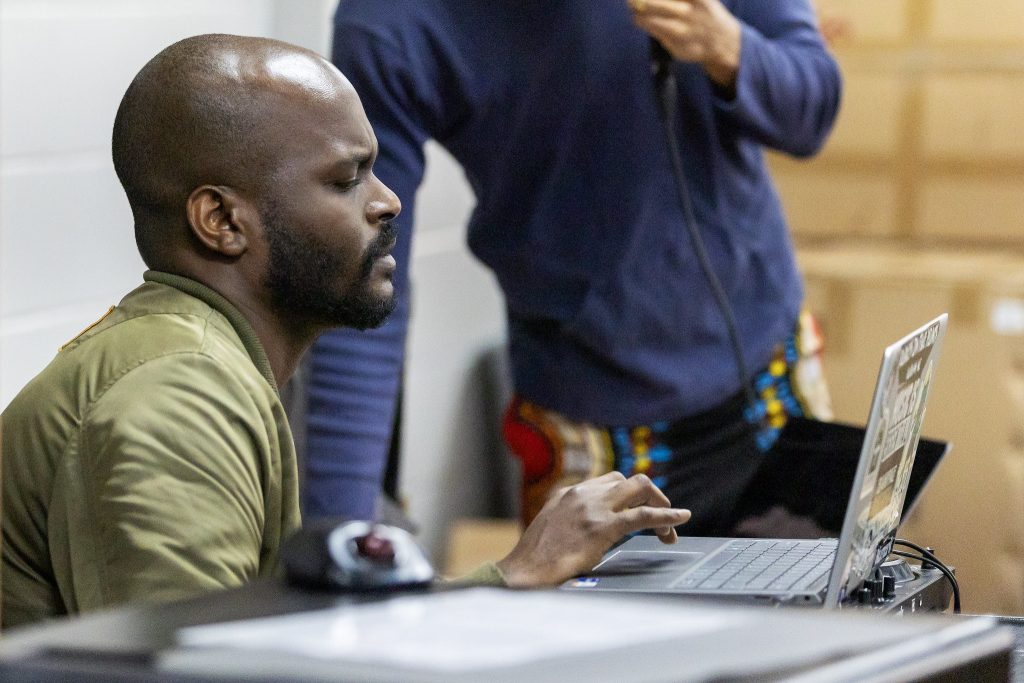
Freelon said the most powerful tool students have to make music isn’t something they can purchase online.
“It’s their imagination,” he said. “We found out very quickly in our journey that young students have an incredible imagination, and we have to harness the powerful tool before they reach the high school where other outside influences can reshape their minds.”
He said peer pressure and growing up trying to fit in is not easy for young black students.
“There’s a lot more pressure on a kid’s mind and giving them the free space to express themselves without restriction, I think, is a real blessing,” he said. “We are both blessed to spend time with students and hopefully make a positive impact able to help open their minds.”
Originally from Miami but now calls Durham home, Reem said his love for music started every Sunday morning in southern Florida.
“Going to church was where my musical roots are planted,” Reem said. “Like 95 percent of every black musician today, it all began there.”
He said students aren’t taught hip-hop music in the classroom, but it is a big part of their lives.
“Music connects people, especially our children,” he said. “Music speaks on their lives, where they are from, and what’s important to them.”
Reem said he wants students to know that producing music is possible for them.
“I think getting relevant music back into the classroom is extremely important,” he said. “This is a fabric of their music or fabric of where they come from, especially with everything going on around them today.”
Freelon and Reem have connected with thousands of students in their travels and admit not everyone will walk away with a music career.
“As long as they have something that they can like and can connect with, we have succeeded,” Reem said. “We just want students to be able to learn and work together. Students can have camaraderie, and it can be music that bonds new friendships.”


